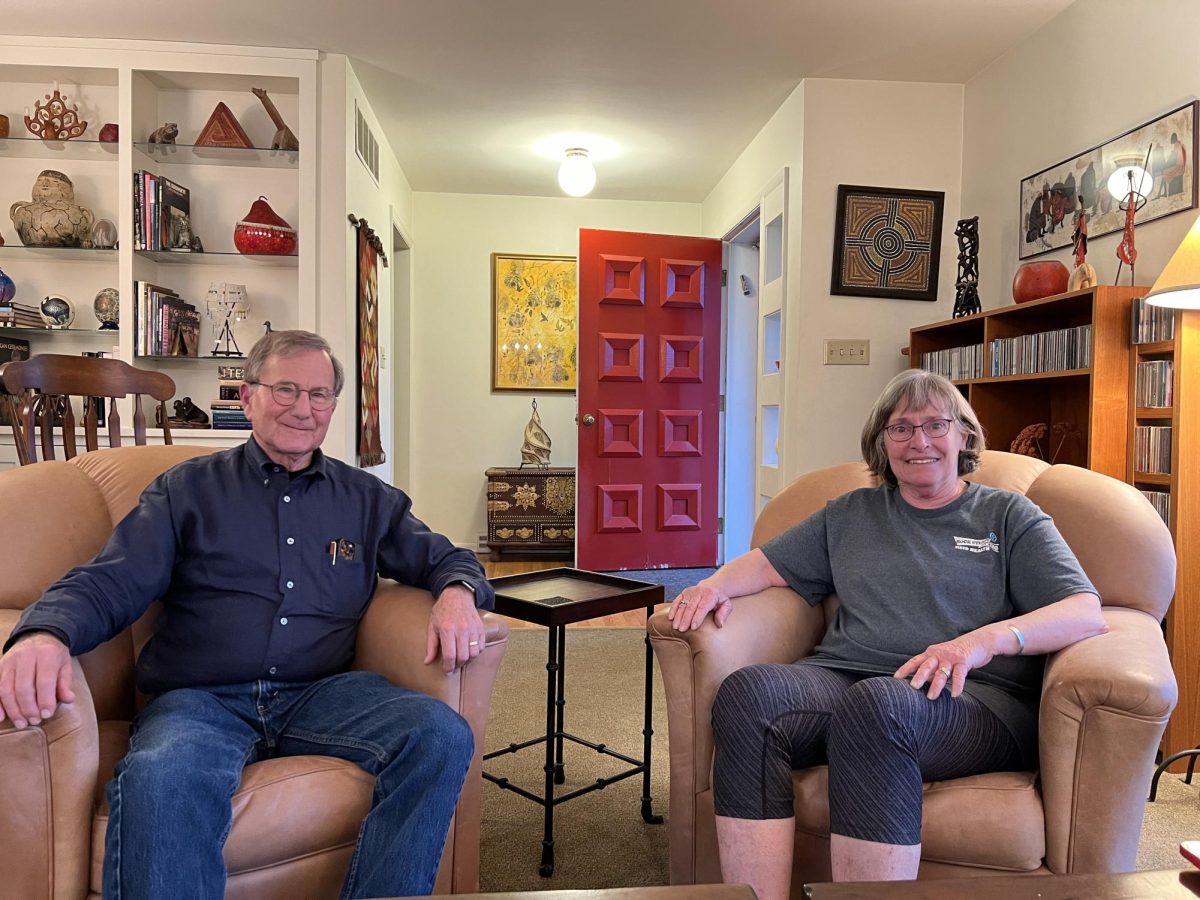Each morning for three days a week, Sara Penhale dons her hot pink boxing gloves and heads to the gym. The retired biology professor from Earlham College isn’t competing against others, though — she’s competing against the progression of Parkinson’s disease, which she was diagnosed with 17 years ago.
The program Penhale participates in, Rock Steady Boxing, previously shut down in Oxford last fall. Thanks to the work of Penhale and her husband Allan Winkler, as well as new funding and a partnership with Tri-Health and Miami University, the program returned to the area on March 8. New head coach Nancy Malay leads classes in the Miami-owned Chestnut Field House on Mondays, Wednesdays and Fridays from 8:30-9:30 a.m.
Rock Steady Boxing is a non-profit organization with locations across the country offering no-contact boxing programs for people with Parkinson’s disease. Instead of sparring with others, participants like Penhale work at heavy bags and speed bags, practice balance and agility, work with battle ropes and more. Routine exercise can help minimize the severity of Parkinson’s, improve confidence and coordination, and decrease muscle stiffness and pain, according to Rock Steady Boxing’s website.
“People in general that get involved with Rock Steady are really motivated towards their own wellness and working through some of the challenges with Parkinson’s,” said Malay, a Miami alumni who holds a doctorate in physical therapy. “They are still vital, athletic folks that want to be able to still maximize their bodies’ potentials.”
Penhale originally helped bring the program to Oxford two years ago through a partnership with Reid Hospital in Richmond, Indiana. Last year, the program averaged around eight participants, but when the hospital went through financial struggles last fall, it shut down the program in Oxford.
With new funding and a partnership between Tri-Health and Miami University, Rock Steady Boxing has returned to the community for three days a week. Malay said the program now has 16 members, a dozen of whom show up at each session.
Penhale said that Rock Steady was important to slow the progression of Parkinson’s and to build a support network. During the four months that the program didn’t operate in Oxford, she and a group of three to four other participants carpooled to Richmond three days a week.
“People need encouragement, and it’s nice to share your experience with people who are having similar experiences,” Penhale said. “You can learn from them and be encouraged and motivated to work harder.”
Winkler, Penhale’s husband, said a $500 grant from Parkinson’s Support and Wellness helped pay for Malay’s training to become a head coach. An additional grant from the McCullough-Hyde Memorial Foundation is helping with other expenses like renting the space from Miami.
Mike Arnos, senior director of programs and academic partnerships for Miami Recreation, said Rock Steady Boxing is one of two main community organizations that rents space at Chestnut Field House. He estimated that roughly 100 other organizations rent various athletic facilities on campus throughout the year.
Arnos said he reserved Rock Steady Boxing’s original time slot in the field house while they worked on getting a new head coach and funding. The athletic department also invested in new boxing equipment for both Rock Steady and student boxing organizations, he said.
“I probably wouldn’t have done that without the dollars that [Rock Steady] had committed to paying for the space,” Arnos said.
Malay said she assesses each new member and modifies the activities based on their mobility. Because of the individualized approach to care and exercise, Penhale said the program would benefit from “extra hands,” especially an additional coach.
Malay agreed.
“It would be definitely beneficial to have another coach, at least another coach … There’s a degree of knowledge and training that you have to have, too,” Malay said, adding that it is a more specialized type of fitness class.







